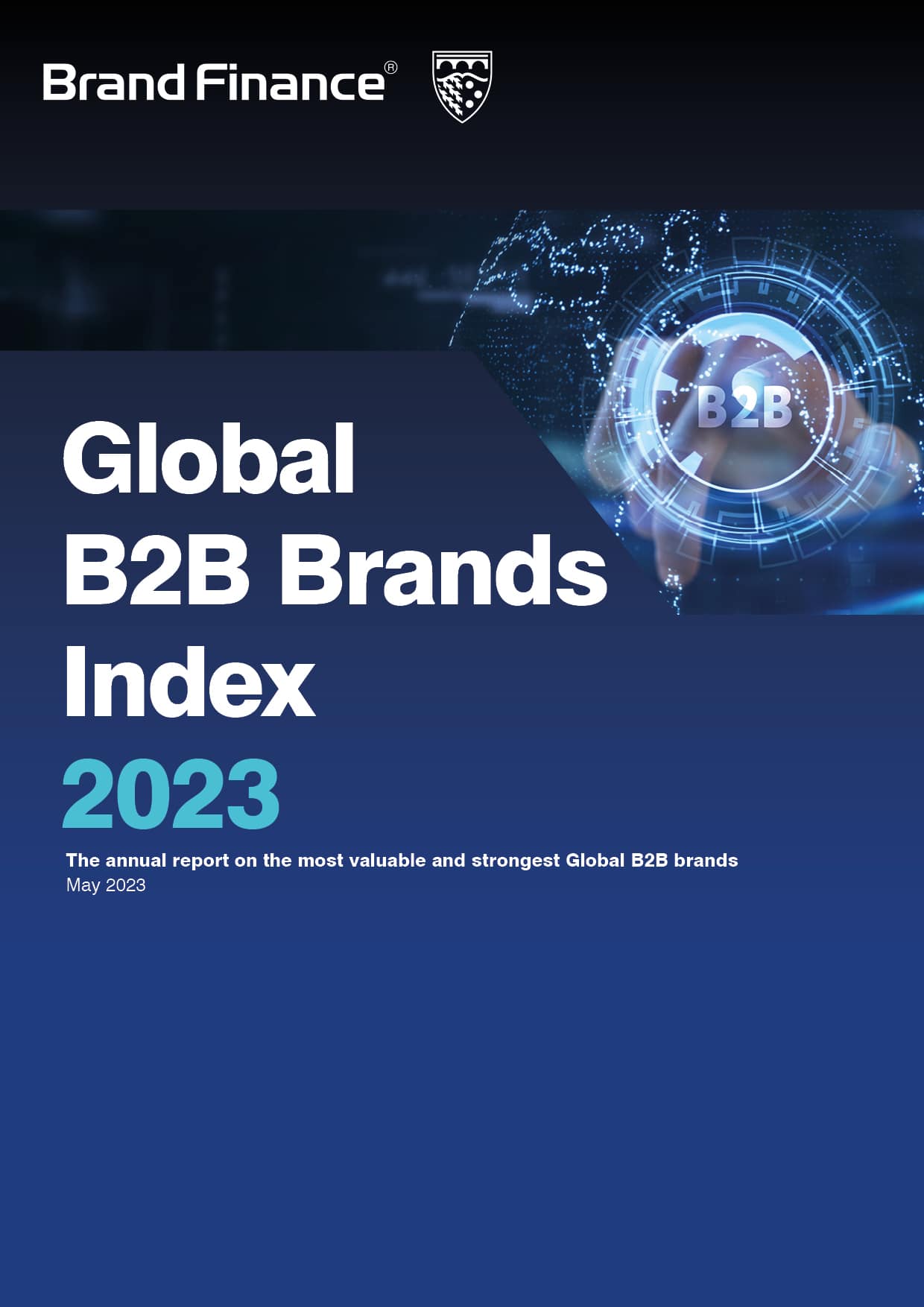This article was originally published in the Brand Finance Global Most Valuable B2B Brands Index 2023.

Chairman and Chief Brand Officer, Stein IAS
Director, North America, IAA
B2B organisations that invest in brand and balance it with their investment in demand will increase in business value. This is more than a hypothesis or premise. It is a matter of fact, validated by a considerable and growing body of research and case evidence. So, why isn’t there even greater investment in B2B brand marketing?
Traditionally, a B2B marketer’s textbook purpose has been to support sales. But when the focus in an enterprise over-indexes on sales, which is still common in B2B, brand lives in service. Marketing campaigns as a result become short-term, tactical and rational, aimed at the buyers currently in the market. Brand campaigns in contrast are emotionally resonant, memorable and designed to reach those in market as well as the much larger customer base that’s not (but will be). B2Bs need both to grow in value.
Think of Salesforce. It clearly is brand-led. For years, it has used its branded characters throughout campaigns and communications to make technology fun and friendly and inspire customers to blaze new trails.
Its ‘Team Earth’ campaign is another exemplar of emotionally enlivened B2B brand building. The message is powerful: tech brands and all businesses have enough to do on Earth without becoming obsessed with adventures in space. The call to action is to be part of Team Earth – part of a business community committed to equity, sustainability and change.
It’s bold. It’s provocative. It has Matthew McConaughey in a Super Bowl spot. It clearly aims to make Salesforce famous for being human, for caring, and for being ‘down to earth’ in the best and most important possible way.
“B2B organisations that invest in brand and balance it with their investment in demand will increase in business value. This is more than a hypothesis or premise. It is a matter of fact, validated by a considerable and growing body of research and case evidence. So, why isn’t there even greater investment in B2B brand marketing?”
At the very highest level, it has little to do with the software Salesforce sells. But over time, it enables Salesforce to sell more of it, to expand its product and market footprint, to acquire and retain customers, and to inspire all its constituencies.
Or course, Salesforce uses demand generation tactics and lots of them, from content marketing to performance marketing. These are made more effective and efficient by being haloed by a brand that is distinctive, memorable, mentally available and highly regarded.
At Stein IAS, we’ve coined a concept and approach called the EQL – the Emotionally Qualified Lead. In our view, the leads Salesforce generates are emotionally qualified, because affinity with a brand in B2B, as in B2C, creates more and higher-quality demand.
The ironic thing is that plenty of B2B C-level executives signing off on Salesforce contracts would balk at adopting this same strategy for their marketing. “Spend millions on a Super Bowl ad that doesn’t even talk about the product. Are you crazy? Have cute, little characters in a sales campaign? You’re fired!”
This attitude must change if more B2B brands are to become more famous and reap the rewards. And it is changing. Many of the brand value leaders in this report – from Accenture and Deloitte to Microsoft and Mastercard – consistently invest in brand to create business value. More will do so in the future, because with fame comes fortune.

